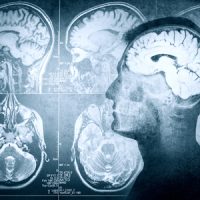Personal Injury Cases and Traumatic Brain Injury

Many serious personal injury cases such as car accidents, trucking accidents, biking accidents, slip and fall cases, nursing home abuse and neglect cases, dog bite cases, or even pedestrian accidents result in traumatic brain injuries. Unfortunately, traumatic brain injuries (TBI) may be life-threatening and severe. Understanding how to determine if you may have a TBI following an accident can be critical for your health.
Traumatic Brain Injury
Traumatic brain injury (TBI) actually describes many different kinds of severe injuries that occur to the brain following a traumatic blow. TBIs may range from minor to very severe. Examples of TBI’s that may occur following an accident could include a concussion, diffuse axonal injury, traumatic subarachnoid hemorrhage, contusion or hematoma. In many cases, a victim of a serious accident often suffers more than one of these types of brain injuries.
Symptoms of TBI
There are several different symptoms to watch for regarding TBIs. First, if you feel any kind of pain or disorientation following an accident, you should seek immediate medical treatment. Never postpone seeking the medical evaluation of a professional, as oftentimes time is of the essence regarding traumatic brain injuries. However, if you seem to feel fine immediately following an accident, make sure to watch for the following symptoms that may indicate the presence of a TBI.
- Loss of consciousness for any period of time
- Headache
- Loss of memory (either short or long term)
- Confusion and disorientation
- Fatigue
- Inability to concentrate or foggy thinking
- Dizziness
- Emotional changes including depression, anxiety, irritability, or anger
- Nausea or vomiting
- Visual disturbances, or inability to see
- Sleep changes
There are more symptoms that may indicate a TBI, and therefore it is always wise that a person seek medical attention and evaluation following any kind of accident.
TBI Diagnosis
If a medical professional believes that you may have a TBI, they will first use a Glasgow Coma Scale. This medical evaluation will make a determination regarding a person’s cognitive abilities and physical function levels that relate to the brain. Once this testing is complete, a medical professional will determine if additional testing or treatment is needed. Oftentimes, a physician will order CT or MRI scans or even order intracranial pressure monitoring to determine if the brain has swollen as a result of a TBI.
Contact an Experienced Attorney
Depending on the severity of the accident, and the seriousness of the TBI, there are different treatments available. Minor TBIs will still require a person to rest, refrain from difficult cognitive thinking and take over the counter medications. Even if a TBI is minor, it is likely that a victim will have to refrain from going to work which will cause them lost wages. If a TBI is serious, it could cause a lengthy hospitalization or even surgery. If you were in any kind of an accident due to someone else’s negligence that resulted in a traumatic brain injury, contact a Columbia personal injury attorney at The Stanley Law Group at 803-799-4700 to help you build a strong case and help answer any of your legal questions.
Resource:
nichd.nih.gov/health/topics/tbi/conditioninfo/diagnose
https://www.thestanleylawgroup.com/spinal-cord-injury-victims/
